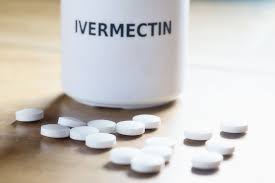Ivermectin is a rather controversial topic and today we are going to dig right into its heart. Originally developed as an anti-parasitic drug for treating animals, the drug Ivermectin has recently gained interest in human health, particularly for the possibility that it might help with COVID-19. Join us in an exploration of humble Ivermectin in human health–disentangling lies from truth.
Unpacking Ivermectin: From Veterinary to Human Medicine
As time goes on, various claims have been made about the drug’s ability to beat down the virus. These arguments at first seemed convincing, borne out by research in test tubes and personal stories of individuals who said they were saved by Ivermectin during the epidemic.
But there remains doubt over the benefits of Ivermectin for COVID-19. Many health authorities and experts argue that these claims need to be tested in thorough clinical trials on a large scale. Up till now, there is no decisive body of evidence whatever that supports either side; this state of affairs has led professionals involved in COVID-19 management to discuss when and how Ivermectin should be used.
The Controversy: Ivermectin and COVID-19
Over the past year, various claims have surfaced suggesting the drug’s potential role in combating the virus. These assertions initially gained traction due to in vitro studies and anecdotal reports, which portrayed Ivermectin as a game-changer in the fight against the pandemic.
However, skepticism remains. Many healthcare authorities and experts insist on the necessity of large-scale, well-designed clinical trials to validate these claims. To date, a conclusive body of evidence is yet to be produced, fostering debate among professionals regarding the appropriate usage and potential benefits of Ivermectin in COVID-19 management.
The Existing Evidence: What do we Know?
Many recent clinical trials and research studies bring more fuel to the fire; their findings on Ivermectin’s efficacy against COVID-19 vary as much as anything. Still, some findings have been quite positive indeed: “Ivermectin may lead to lower viral replication, milder symptoms, and better patient outcomes,” say other researchers. Moreover, several observational studies have suggested a potential decrease in the death rate among patients receiving Ivermectin.
Yet, these findings must be interpreted with caution. Many of the studies have limitations such as small sample sizes, potential biases, and different treatment protocols. Such limitations make the results less certain, necessitating further research.
Authorities such as Reputable health organizations and governmental agencies have not largely approved of using Ivermectin for COVID-19. In addition to recognizing the interesting results, they stress that additional data should be obtained from rigorous controlled trials before Ivermectin can be recommended as a standard treatment option.
Promoting Rationality and the Need for Further Research
In the face of this controversy, we should use our heads a bit and willingly admit that we simply don’t know enough”.Relying on high-quality, peer-reviewed studies and robust clinical trials is a must in order to evaluate potential benefits and risks associated with Ivermectin. Given its potential as an antiviral agent, funding for research in this area must increase, allowing systematic inquiry into the properties of Ivermectin. We need large-scale, and rigorously randomized, controlled trials encompassing many different types of people to reveal definitively how effective and safe a COVID-19.
For the rest of the world: it takes a collaborative effort between researchers, healthcare practitioners, and regulatory authorities. With partnerships and from the pursuit of knowledge we can realize all of Ivermectin potential, to the main body of mankind’s health.
Conclusion
Concluding our sojourn into the Ivermectin controversy shows that the drug’s potential for drawing attention from a variety of different sources cannot be encapsulated in a single sentence. The particularities of Ivermectin, a drug originally intended for animals but now increasingly applied to humans, are endless subjects for scientific discovery.
In the course of discussion, we repeatedly stressed that it is necessary to stick to reality, and such theories are untenable. Ivermectin’s efficacy for the treatment of COVID-19 requires cautious evaluation so that we may, and must, await definitive data from well-developed research.

